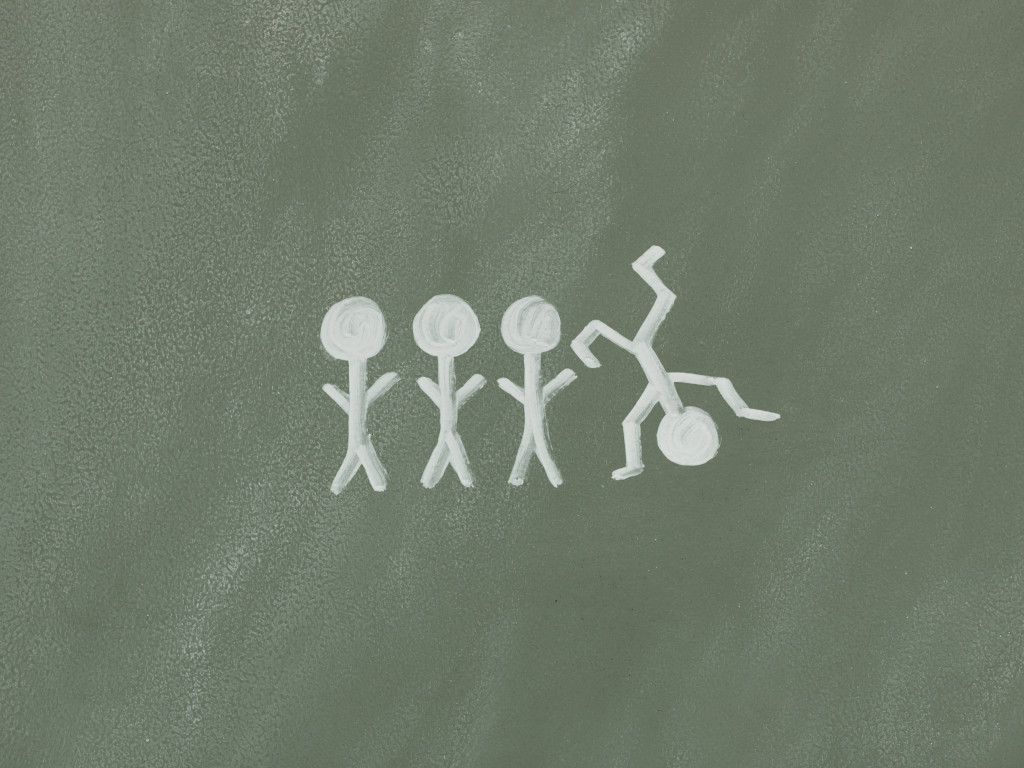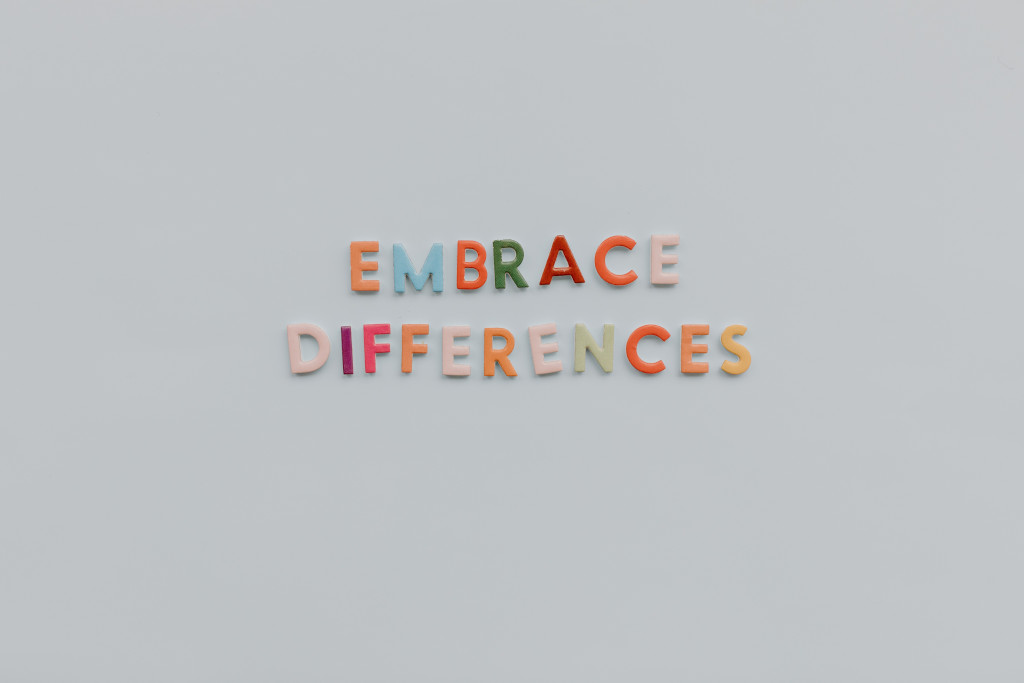SingaporeMotherhood | Parenting
March 2023
“Mum, Why Is That Kid So Weird?” – A Teaching Opportunity

“Mum, that boy’s making so much noise — should we tell his parents?” asked my girl. He was grunting and the echoes vibrating off the water surface rudely interrupted the peaceful morning. I turned to look and noticed that he was swimming alone. A quick glance around the pool identified a middle-aged lady quietly watching him from a nearby deck chair.
Something didn’t seem right. Then it hit me! The moment I realised he was autistic, my annoyance gave way to compassion. I was awed by his mother’s patience. She saw me looking at her and raised her hand to acknowledge me, gesturing an apology for his loudness.
(See also: Are You a Caregiver for Your Child? – Please Read This (+ True Life Stories))
A Teaching Opportunity
I waved back. Then I gathered the kids for a short lesson on inclusivity. “That boy is autistic — which means he is socially less aware of those around him.”
“Is that why he’s swimming in the middle of the pool and making so much noise?” one asked.
“Before we judge, how often have you girls lost sense of everyone else and assumed you were the only ones in the pool? Mum had to remind you of pool etiquette because you were wildly splashing around, while the serious swimmers had to avoid you noisy bunch!”

I gently continued: “We each develop at different speeds; some toddlers learn to walk earlier while others take a longer time to speak. Autism is a condition that impacts the brain development so one’s emotional and sensory regulations are different. Autism Spectrum Disorder means that divergent learning, communication, and repetitive behaviours vary across an entire range.”
Applying it to their lives, I asked, “If a toddler was happily splashing in the pool making lots of noise, would you be ok?”
“Of course, it’s just a baby! Babies are so cute,” my nine-year-old smiled gleefully.
“Yet, the same picture becomes unacceptable when it is a big boy, because we have fixed ideas of how a good boy should behave. What if this person is unable to meet your eyes when he speaks because eye contact overstimulates him, or does repetitive actions because they comfort him?”
(See also: Autism Spectrum Disorder: Symptoms, Causes, Tests & Treatment)
Expand Your Hard Drive
I came up with another analogy: “Let’s say you don’t know a Maths concept. How would you like others to treat you? (a) With a superior attitude, saying it’s so easy and leave you to struggle, or (b) Patiently explain and allow you time to practise till you remember and understand?”
We all know our preferred answer. Yet the reality is that we are so quick to judge anyone who is different from us, be it physical appearance, a learning disorder, or disparate economic status. Our brains quickly pull up old mental files to compare against.

Knowing this automatic brain pattern means we can now consciously rewire our synapses to include new information as a different experience to file. Not limit our ‘hard drives’ to the same old files, but add to our mental library. Expanding our definition of ‘normal’ also means we stop viewing atypical behaviours as a problem.
Differences do not need to be ‘fixed’, but rather, accepted and accommodated.
The image of an autistic person happily splashing in the pool because the waters calm him can be a new file. It is for us to include this picture and adapt to his ‘normal’ instead of forcing him to meet our narrow intellectual standards.
The larger your emotive and mental capability to empathise and understand another’s circumstance, the more evolved and happy your life. You get less triggered by what ‘should’ and ‘should not’ and appreciate what is happening for you, in the moment.
(See also: Nothing but Pride for her Two Autistic Sons)
Raising Human Doings
“Do you know why Mum doesn’t compare any of you with your elder sister?” I asked rhetorically. “Because one will be the ‘winner’, while the ‘loser’ will feel bad.”
We compare one apple to another because both are objects. One apple will not feel less than the other because it is smaller or less sweet. Unfortunately, many adults compare one child to another. In doing so, we reduce human beings to objects. While the intention may be to urge the underachiever towards the achiever’s results or encourage a certain action, the long-term consequence is dire.
Do we equate a person’s self-worth with their achievements and teach them they are only worth the accomplishments they attain? Are we so intent on getting ahead we brainwash our child to chase symbolic trophies — best colouring within the lines, top in class for Science, coveted lawyer job?
Are we raising human doings? And forget we are human beings?
Every time we compare our child, we chip away at their budding self-esteem. Every word uttered in disdain, every disapproving glare — these may win us the trophies we covet. But does it build a false identity based on outward accolades?
So, instead of comparing one human being with another, honour each person for the unique being they are. Life is not a competition between family members, classmates, or colleagues. Life is an individual race marked uniquely for each to enjoy, mature, and fulfil.
(See also: Special Education and Inclusive Preschools and Schools in Singapore)
Develop Inclusivity and Celebrate Diversity

We just marked World Down Syndrome Day on 21 March. And April is World Autism Month, while Muslims are also fasting because it’s Ramadan. Take this opportunity to expand your family’s social norms and embrace different experiences and practices. Develop inclusivity and celebrate diversity by trying some of these family activities:
- Smile, wave, and acknowledge someone who looks different from you.
- Initiate a short conversation with a child with Down syndrome or an autistic person. (Remember to avoid sudden actions and accept that they may not want to look at you or even speak with you initially.)
- Fast for one meal, notice the hunger, and remind yourself to practise good thoughts.
- Sit with a Muslim colleague during lunch and get to know why they fast.
- Avoid food or water for 12 hours (7am to 7pm) if you’re game to embrace a different cultural experience.
Inclusivity starts when we step out of what ‘normal’ is for us to find out what it means for someone else. Stepping into another’s shoes builds empathy, defined by the next four sentences.
- I am in it with you.
- I’m not here to fix you.
- I’m not here to feel it for you.
- I’m here to feel it with you and let you know you’re not alone.
Whom could you show they’re not alone today?
(See also: Guide to Ramadan 2023: Iftar Buffets, Raya Treats & Buzzy Bazaars in Singapore)
 | Author of “The Naked Parent”, founder of Mum Space, and mother to five amazing children, Junia is a respected thought-leader in the parenting space. Recognised for empowering parents and kids with her 21st-century parenting model for over a decade, she now brings her ‘Modern Asian Mother’ expertise and experience to this exclusive SingaporeMotherhood column. |
All content from this article, including images, cannot be reproduced without credits or written permission from SingaporeMotherhood.
Follow us on Facebook, Instagram, and Telegram for the latest article and promotion updates.





